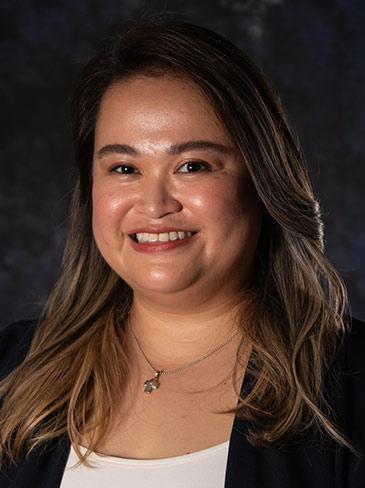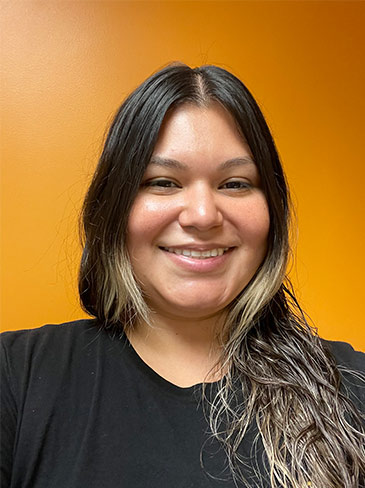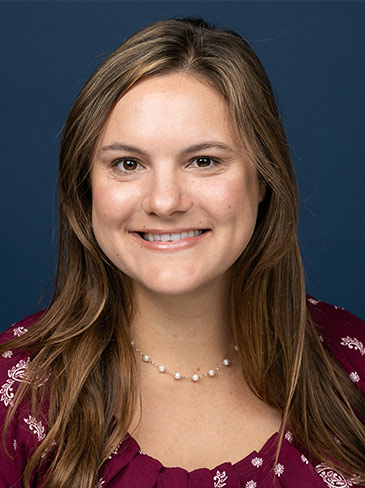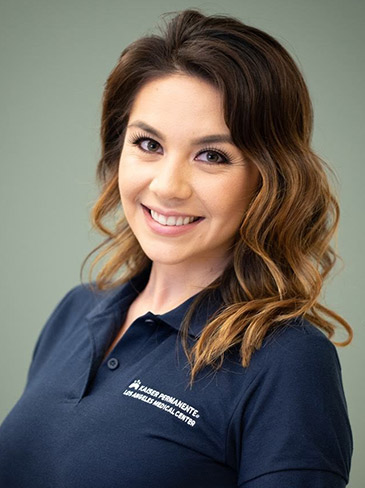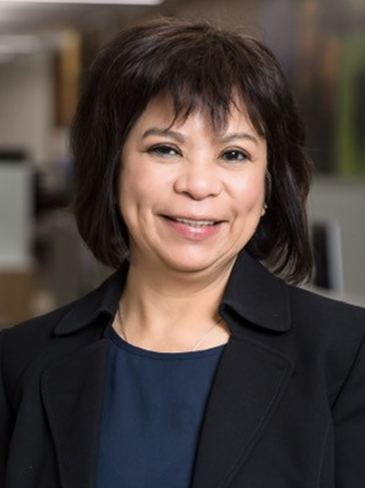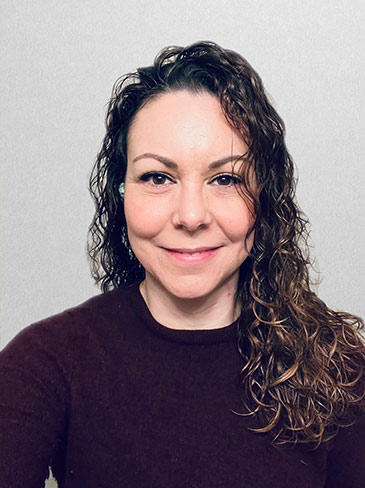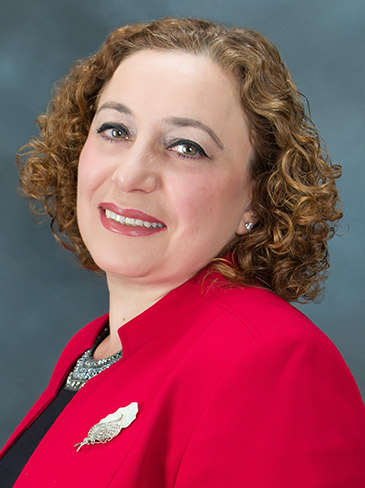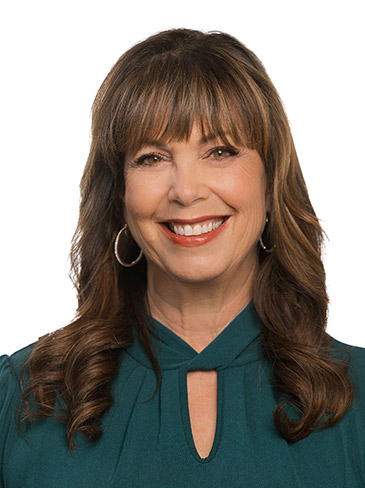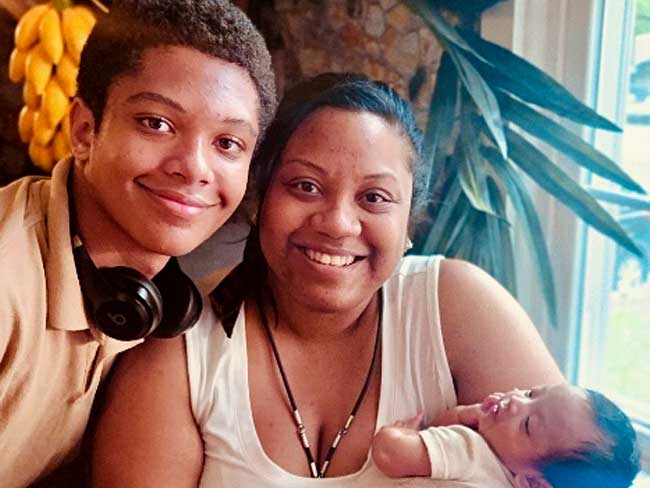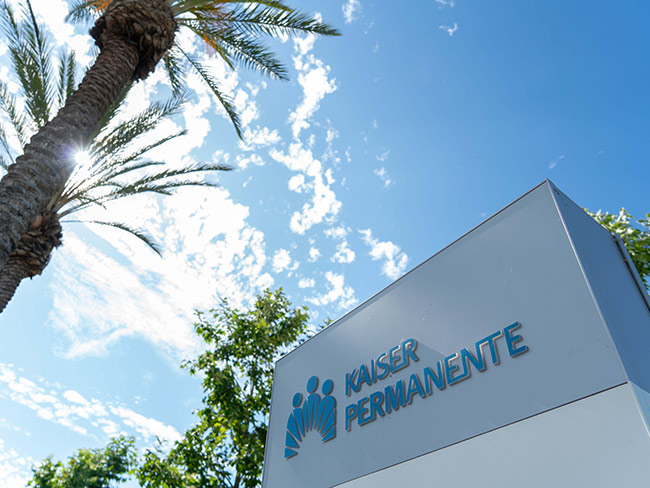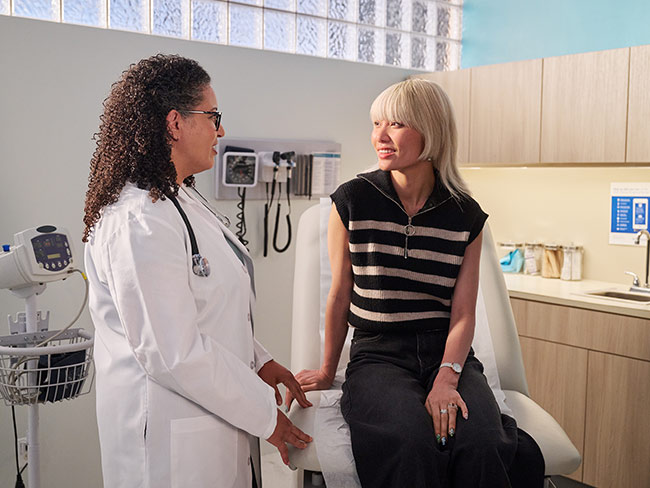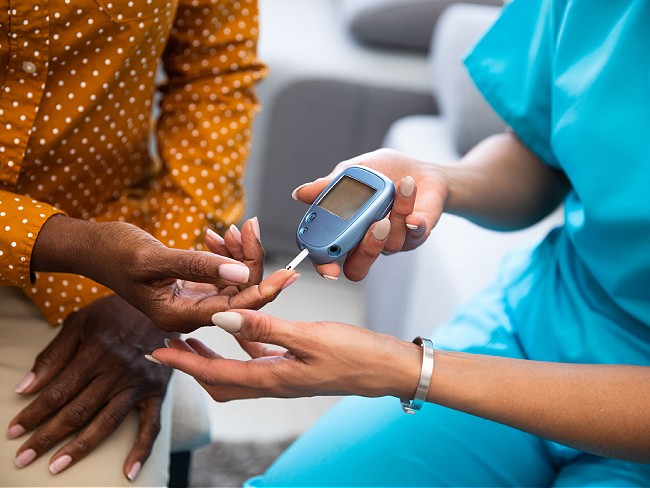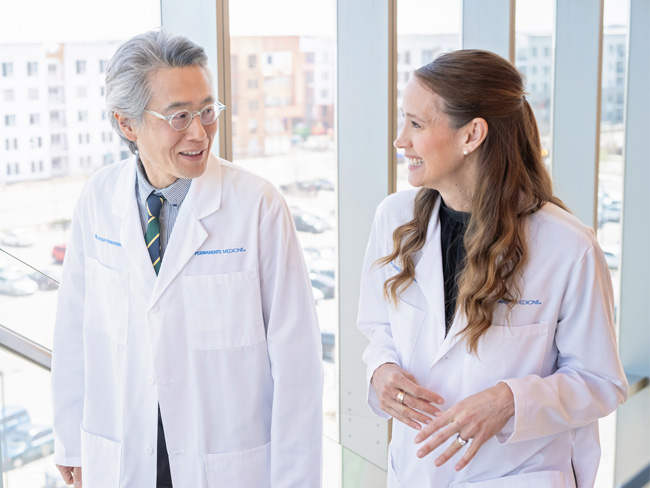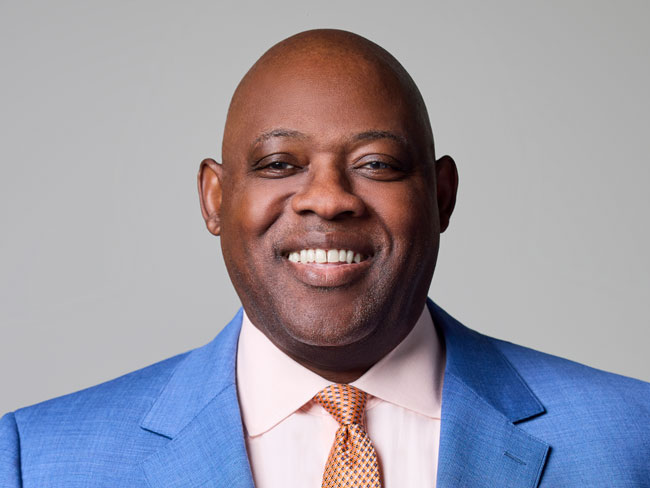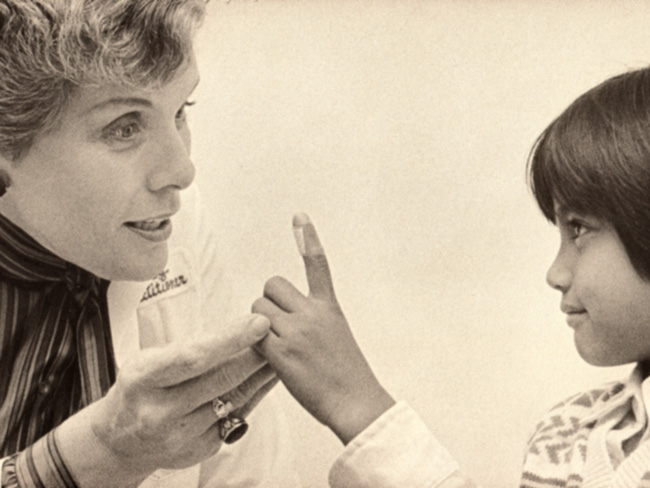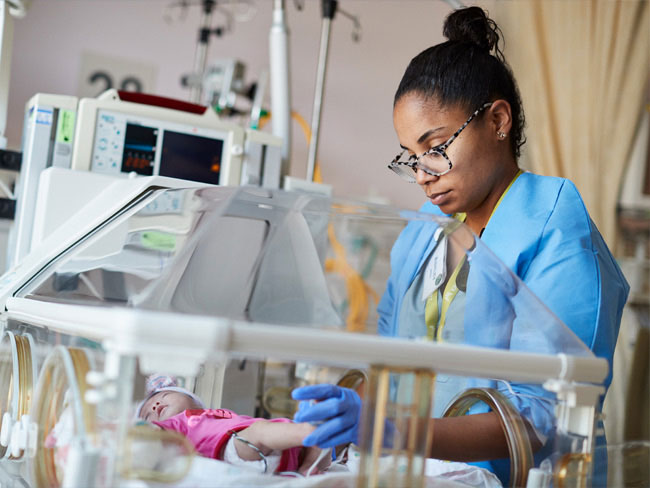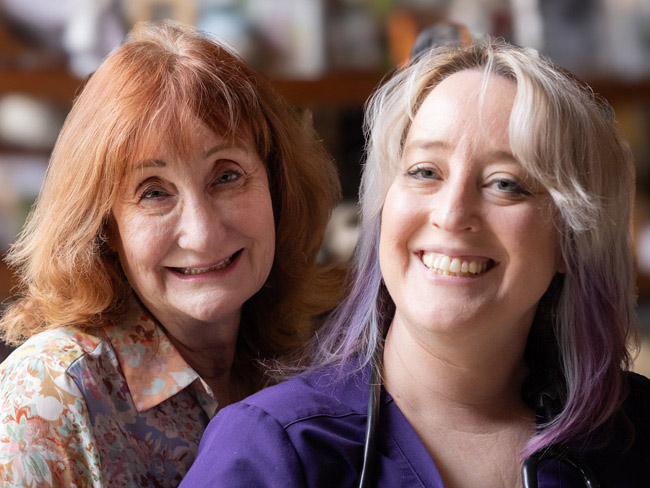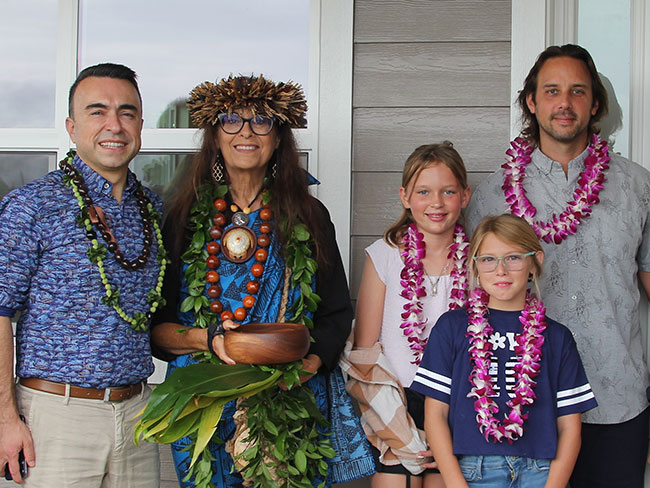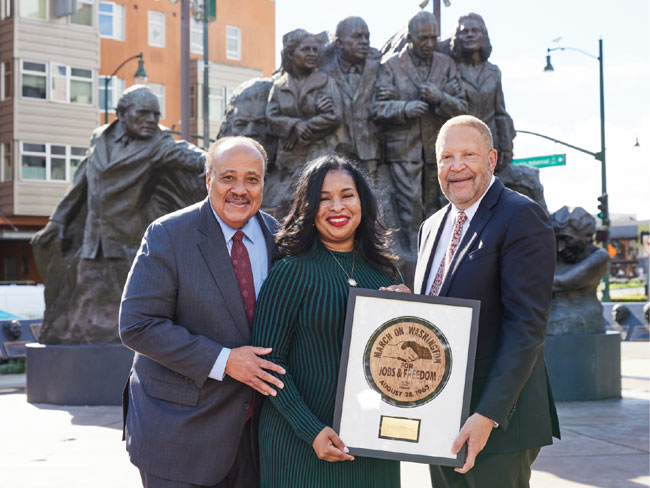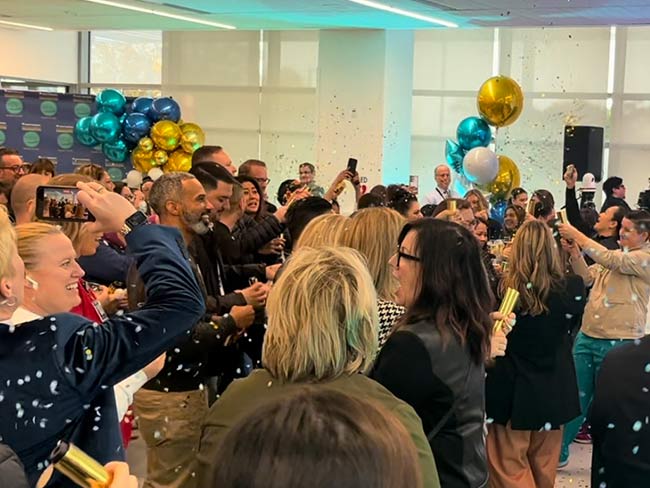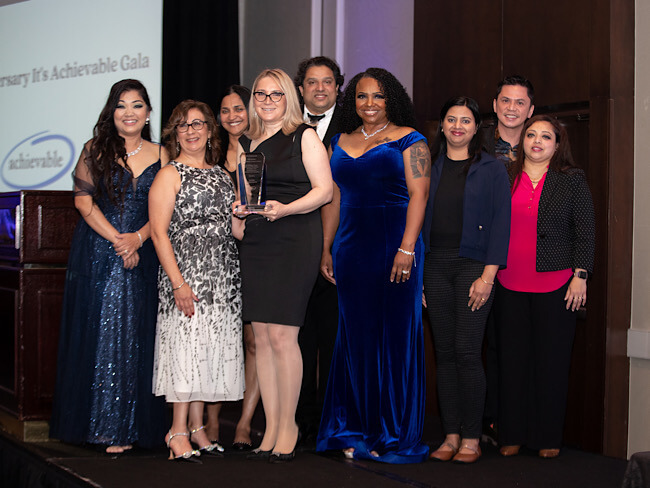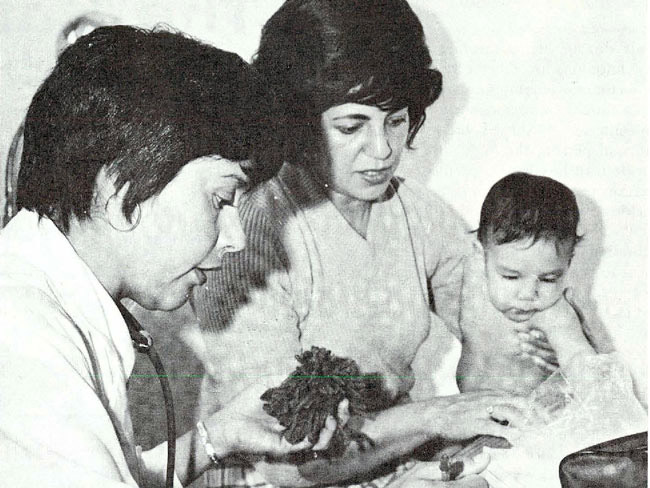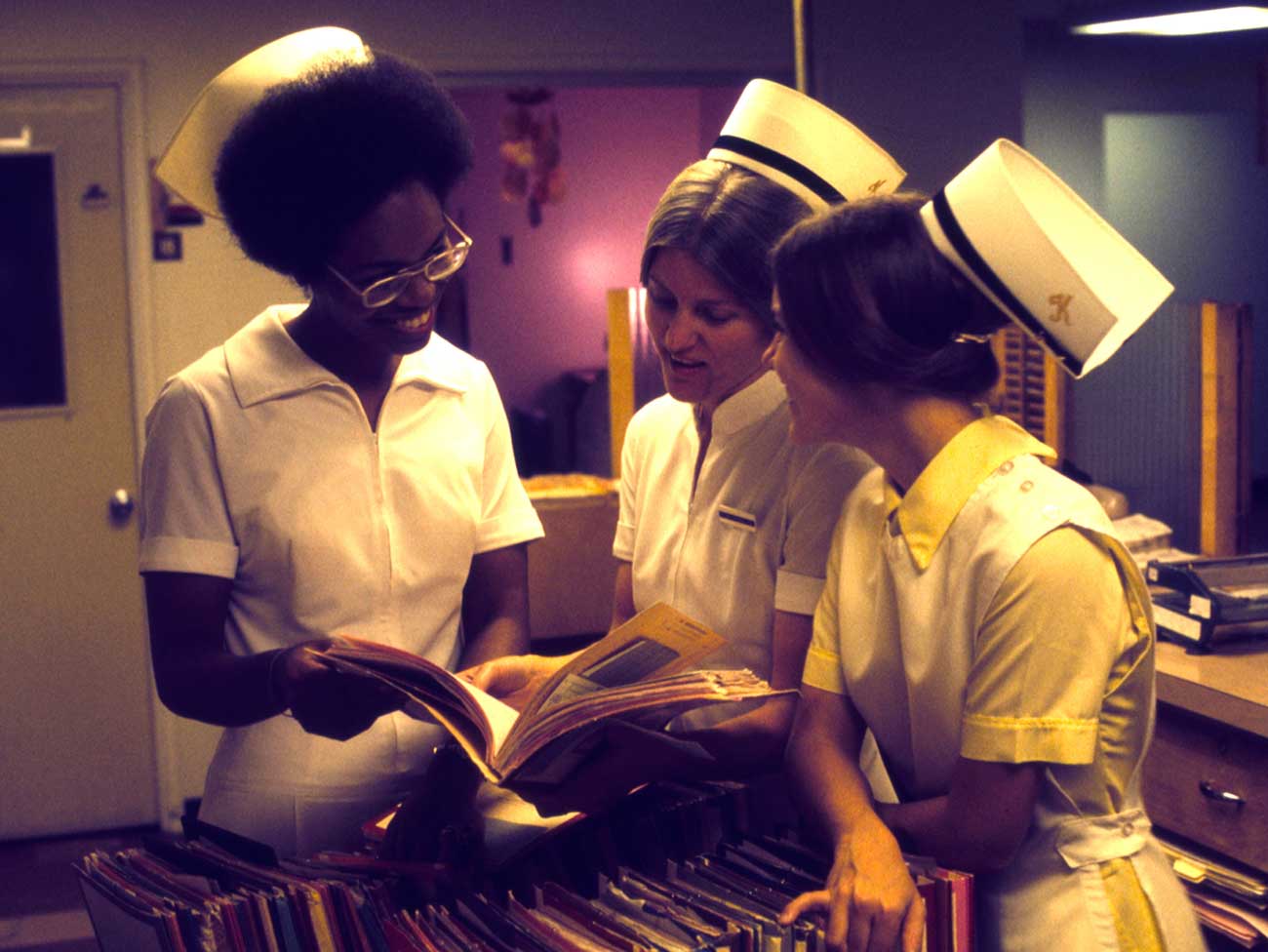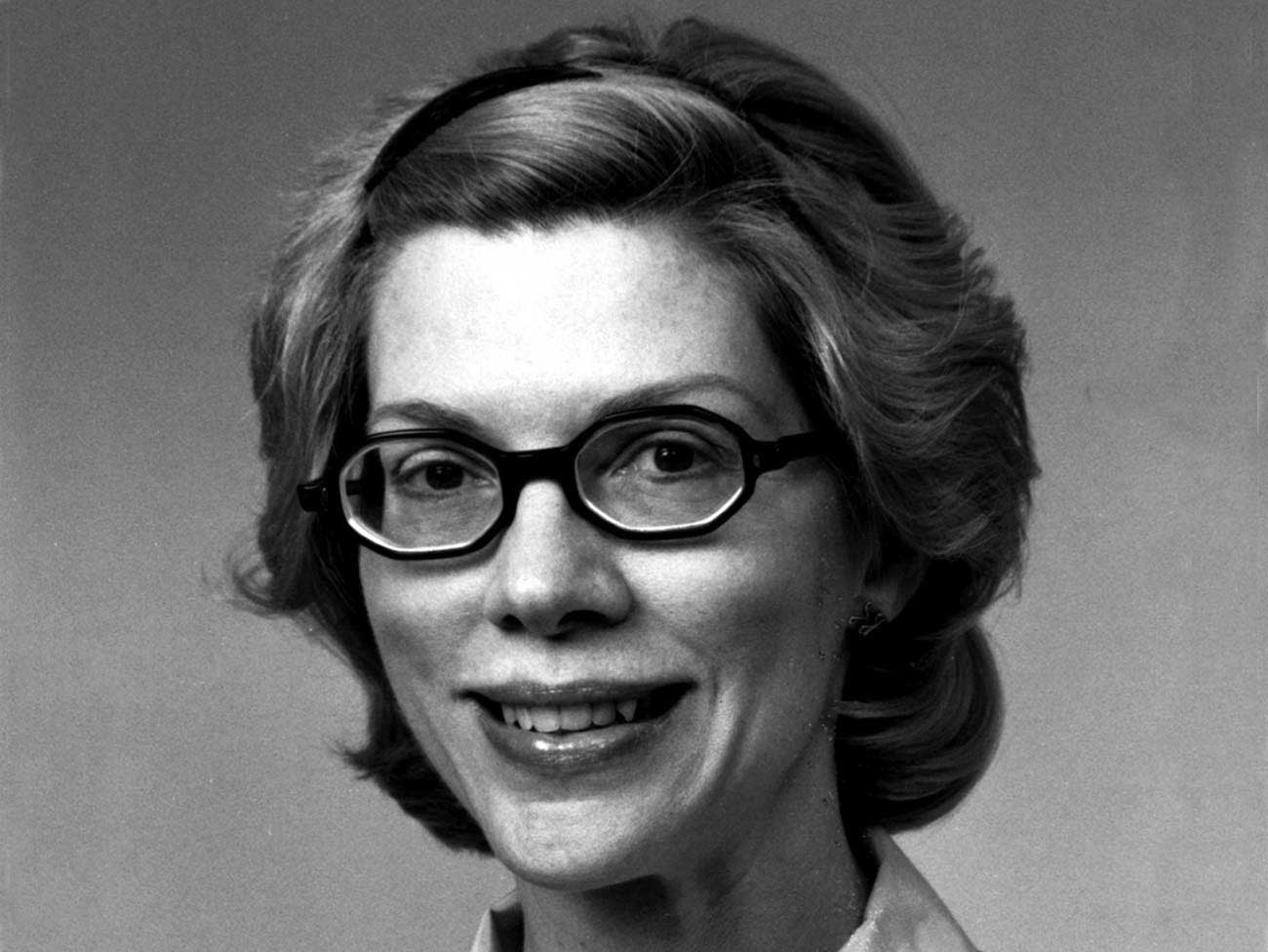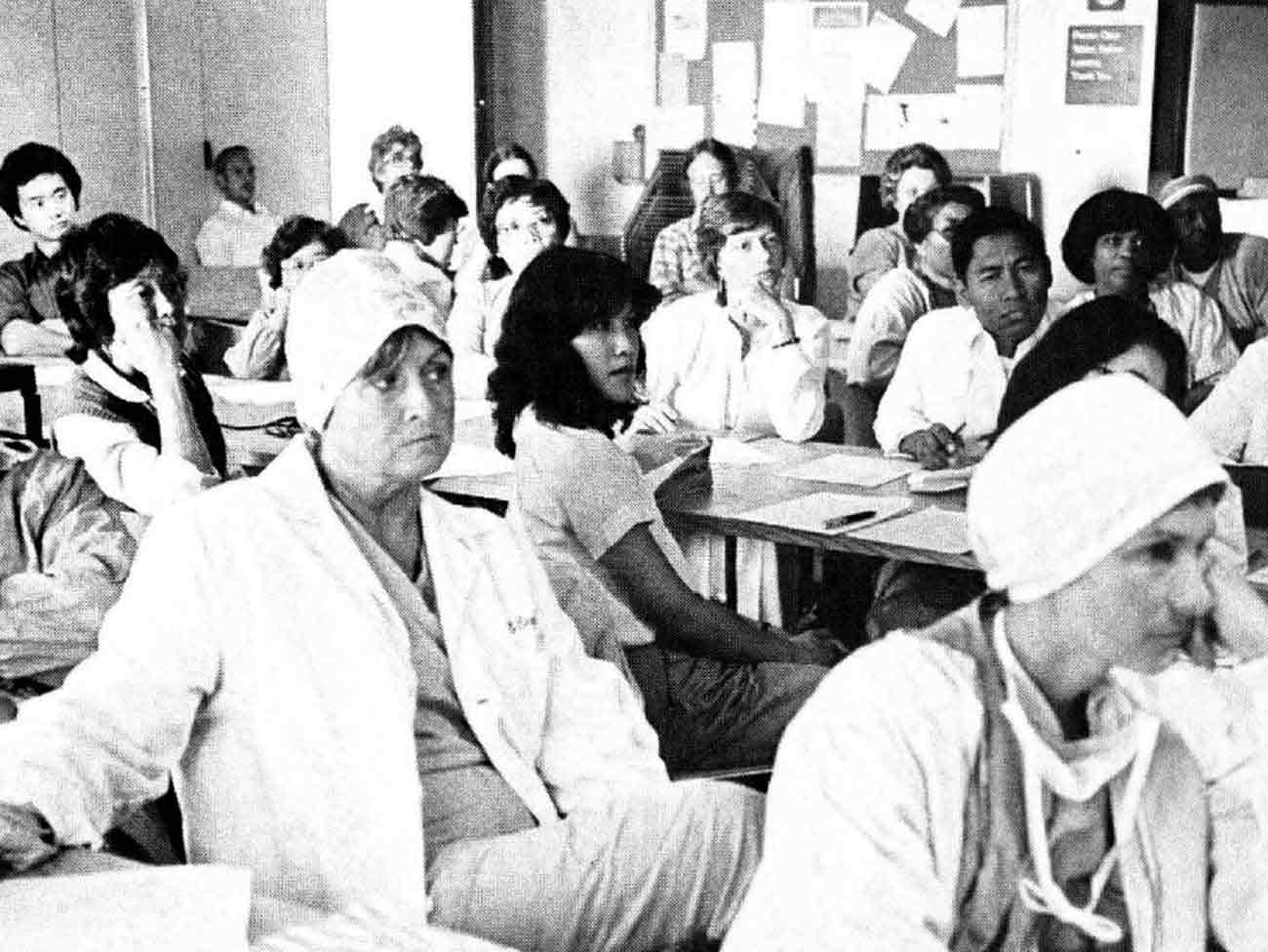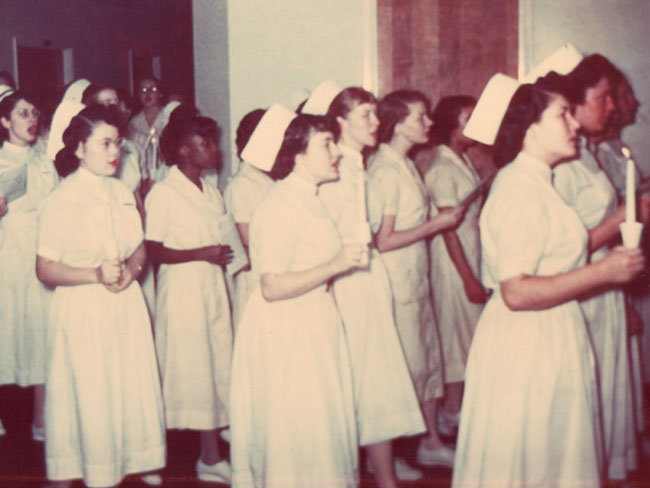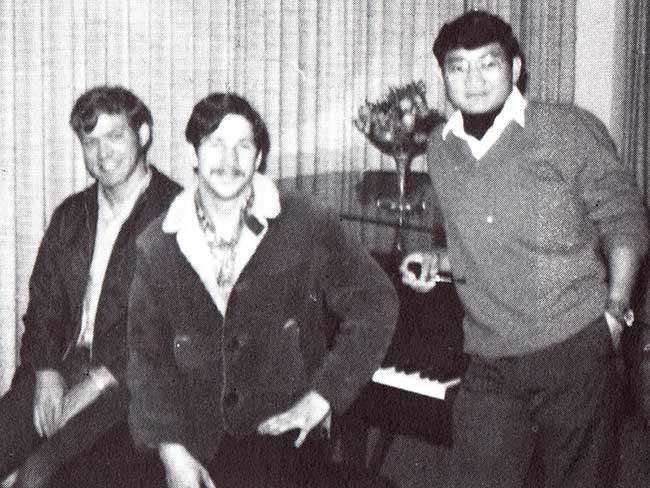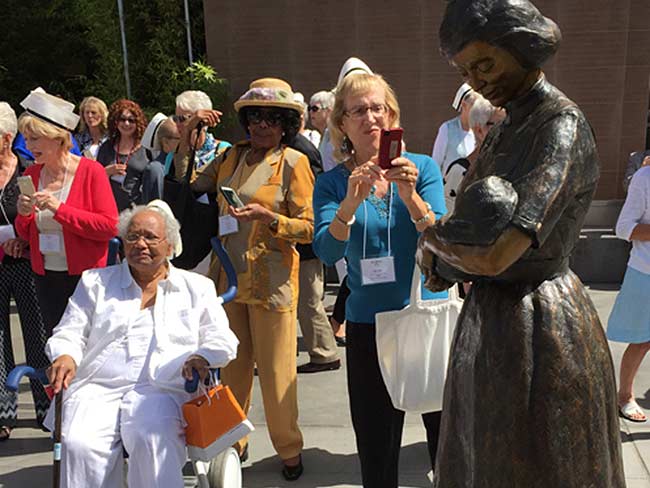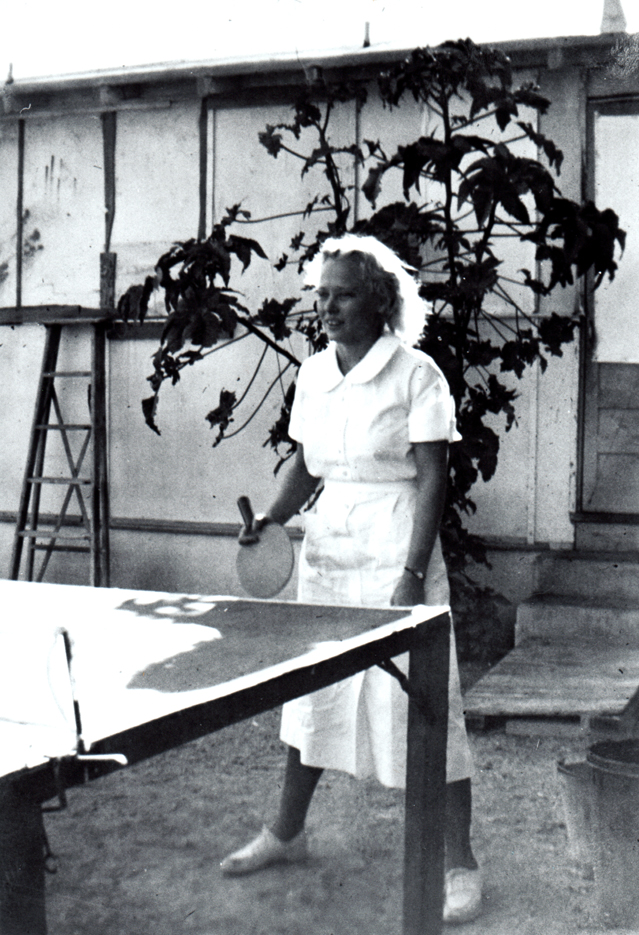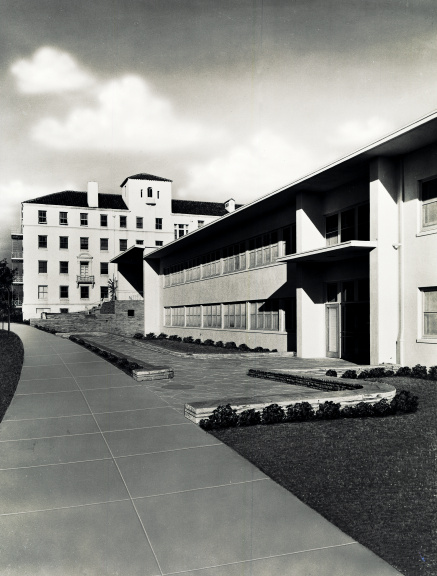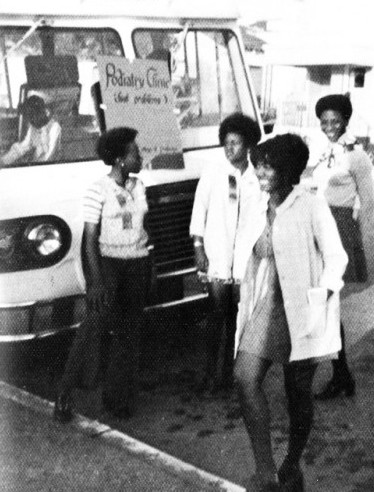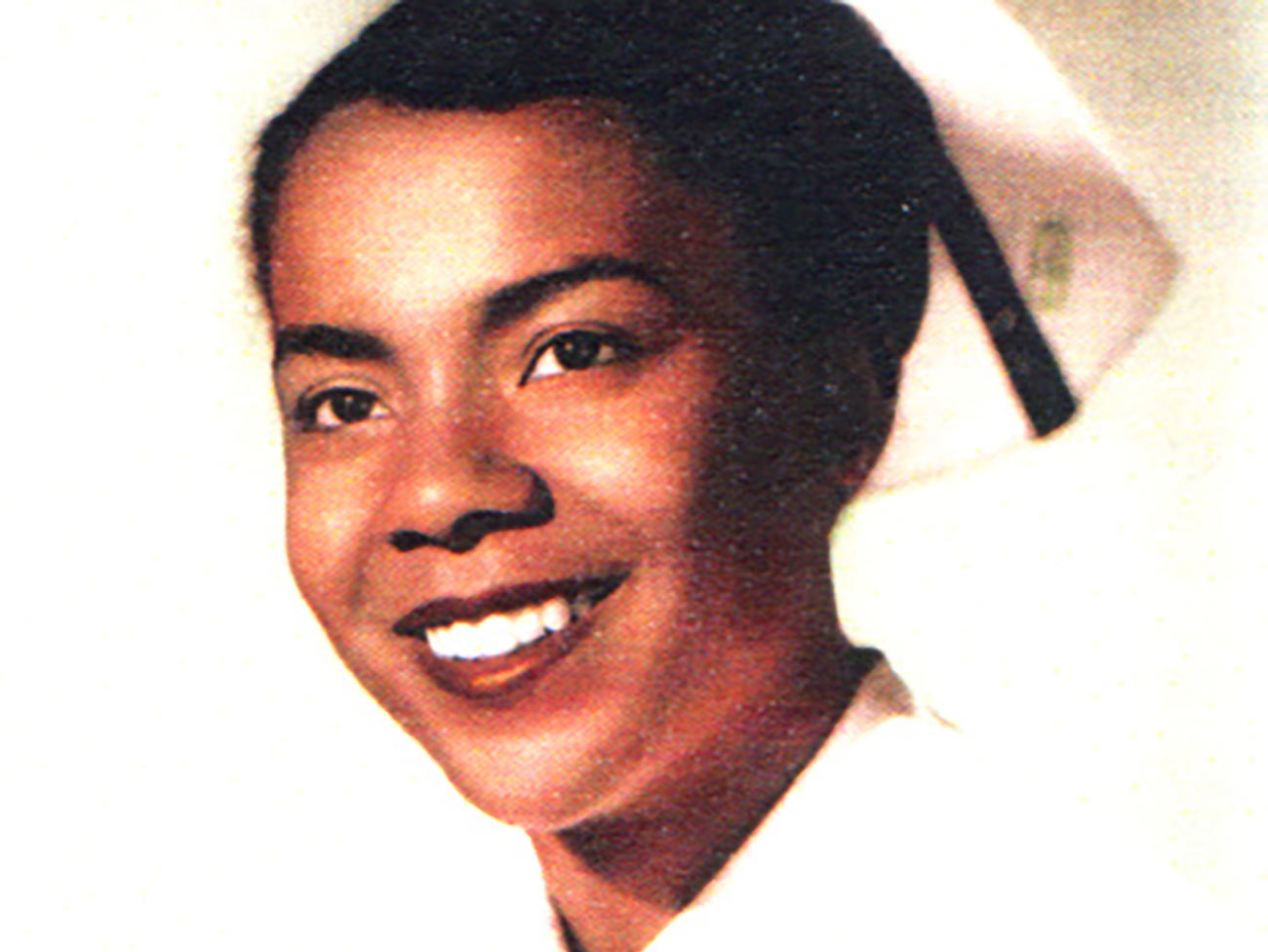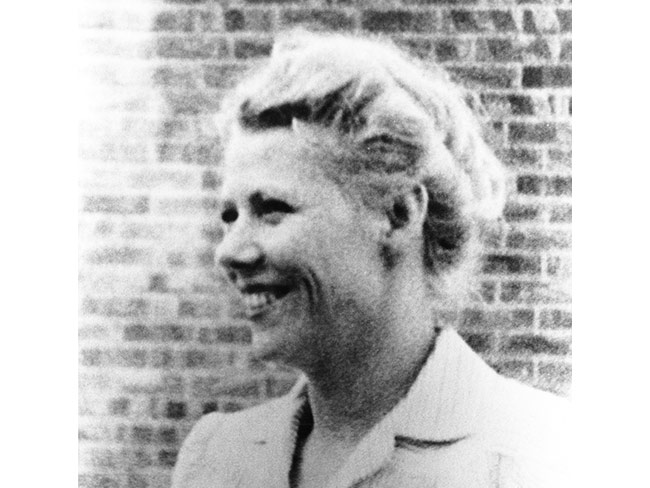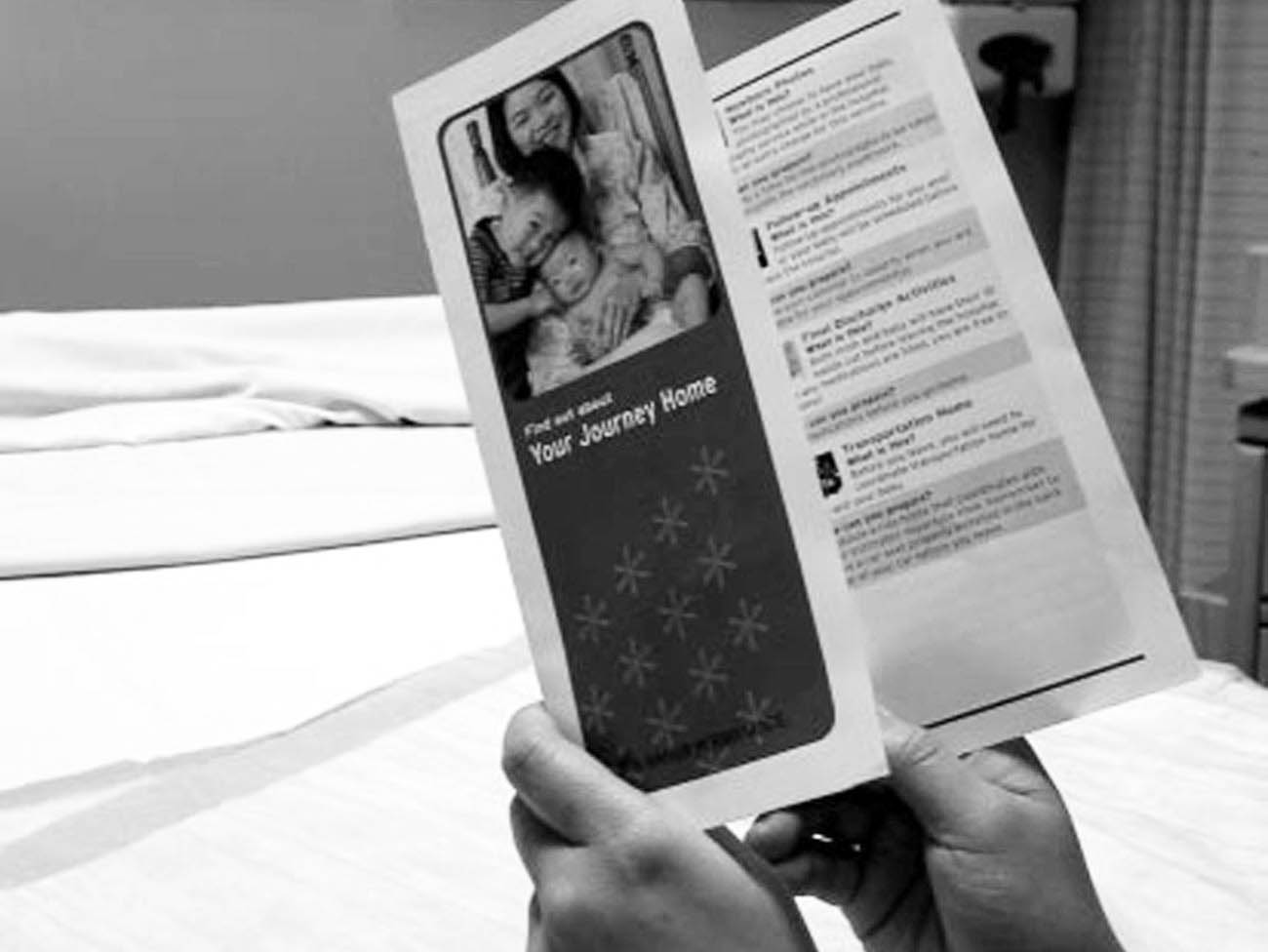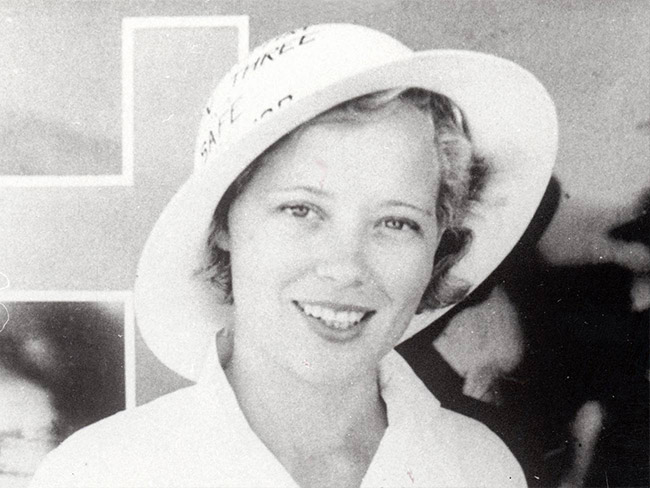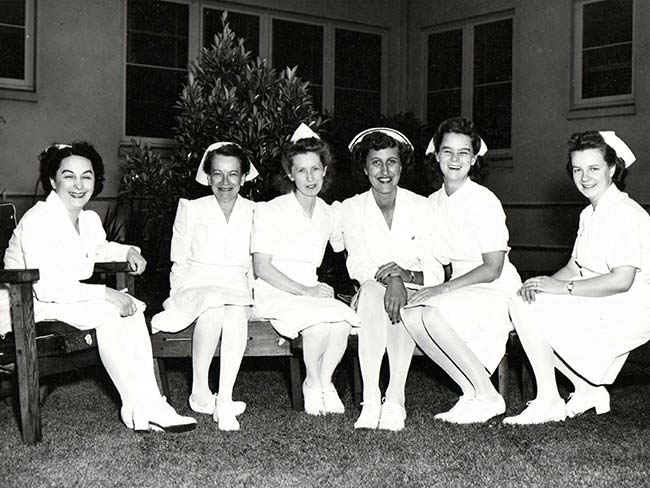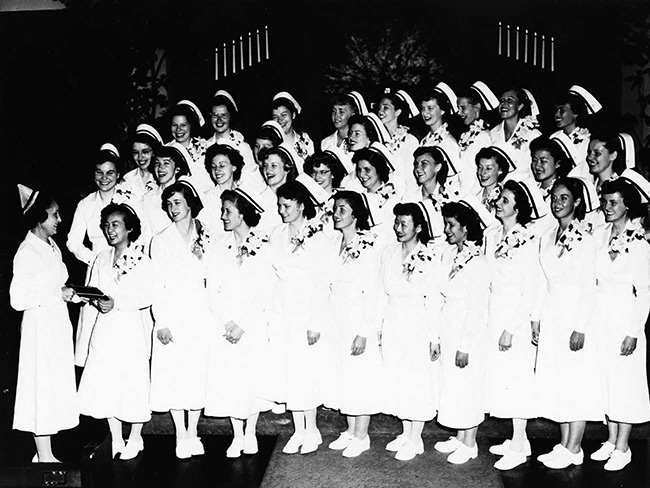Honoring extraordinary nurses
Our award-winning nurses put patients first and contribute new knowledge and innovations to the profession of nursing.
The recipients of the 2024 Kaiser Permanente National Nursing Excellence Awards share their stories.
The 8 nurses chosen to receive the 2024 National Nursing Excellence Awards show the very best of Kaiser Permanente nursing.
“Our award-winning nurses champion nursing excellence and provide our members and patients with high-quality care,” said Phyllis Doulaveris, senior vice president and chief nurse executive for Kaiser Permanente. “Our nurses are innovative and committed to lifelong learning.”
Extraordinary Nurse Award
Jazzy Ogbac, RN, Intermediate Cardiac Surgical Unit, Kaiser Permanente Los Angeles Medical Center, Los Angeles
Jazzy Ogbac inspires others by setting a standard for excellence.
Ogbac posts her team’s quality scores in a public area to help keep everyone in the unit focused on quality. She serves on a hospital council that reviews the hospital’s quality scores, goals, and achievements. She shares what she learns with her team.
Ogbac was instrumental in helping her unit win a gold-level Beacon Award for Excellence in 2020 and again in 2023 from the American Association of Critical-Care Nurses. The national award recognizes exceptional patient care in a healthy work environment. Gold is the highest level of recognition, and each award is valid for 3 years. Ogbac contributed to the award application process.
“You have to have integrity to know what is right,” Ogbac said. “You have to be a good role model so you can do what’s best for your patient.”
Ogbac leaves a lasting impression on her patients. They recognize her in patient satisfaction surveys after their hospital stays.
Extraordinary Licensed Vocational Nurse/Licensed Practical Nurse Award
Deysi Cabrera Ontiveros, LVN, Family Medicine, Kaiser Permanente Cudahy Medical Office, Cudahy, California
Patients often bring Deysi Cabrera Ontiveros flowers and cards to thank her for listening and talking to them. When patients are afraid, she listens. She tells them what to expect and helps them feel better.
Ontiveros helps members understand their treatment plans. She takes time to answer questions and make sure information is clear.
“I try to target what they’re confused about first,” Ontiveros said. “I ask them, ‘Is it the medication? Do you want to know why you are being asked to take medications? Where do you feel confused?’”
Ontiveros connects them with social services if needed. She helps patients sign up for wellness classes, calls the pharmacy to make sure their prescription will be ready, and books follow-up appointments.
“I think that if we’re missing a piece, it’s going to come back to us,” Ontiveros said. “The best way is to resolve issues in the moment. I like to finish something completely, so nobody else on my team has a setback.”
Excellence in Quality and Safety Award
Heaven Holdbrooks, RN, Clinical Nurse Specialist, Neonatal Intensive Care Unit, Kaiser Permanente Irvine Medical Center, Irvine, California
Heaven Holdbrooks improved care quality for our very youngest patients at Kaiser Permanente.
She led an initiative to ensure the safe, appropriate use of antibiotics with babies.
Antibiotics can save lives. But they also cause side effects. And antibiotic use can contribute to the creation of bacteria that’s harder to kill, known as antibiotic-resistance bacteria.
Holdbrooks played a key role in reducing antibiotic use in the neonatal intensive care units at our medical centers in Irvine and Anaheim. She worked with a large, multidisciplinary team in 2021 to create the initiative. Since then, the team has kept up a 25% reduction in antibiotic use for all NICU patients to ensure safe and appropriate use of antibiotics.
“Extraordinary nursing means going above and beyond every day, setting an example for your unit, and having the integrity to stand up and do what’s right,” Holdbrooks said.
Emerging Nurse Leader Award
Nathalie de la Pena-Gamboa, RN, Nursing Professional Development and Education Consultant, Kaiser Permanente in Southern California and Hawaii
Nathalie De La Pena-Gamboa uses creative, interactive methods to prepare the nurses of tomorrow. She makes coursework easier to understand.
For example, to prepare nursing students for providing critical care, she gives them practice situations. In one situation, her students play different roles: a patient who’s had a stroke, a concerned sister, and a worried mother. The role-playing allows students to practice educating family members on how to care for the patient at home and prevent hospitalization.
Students who have taken De La Pena-Gamboa’s critical care program have increased their ability to assess, intervene, and speak with patients and their families. In fact, their abilities increased by 27%, according to evaluations given before and after the program.
“It’s important for nurses to understand the root cause of a problem and work out a solution that improves the situation for the organization and the community,” De La Pena-Gamboa said.
Excellence in Nursing Leadership Award
Juji P. Resurreccion, RN, Director of Nursing, Inpatient Services, Kaiser Permanente Irvine Medical Center, Irvine, California
Juji Resurreccion is known for her drive to improve patient care and her ability to unite teams.
Under her leadership, a nurse-led committee developed ways to reduce pressure injuries at the Irvine Medical Center by 70% over a period of 10 years.
The committee’s preventive strategies include:
- Identifying which patients are most at risk
- Making sure those patients lay or sit on surfaces that distribute their weight equally (rather than on a particular point)
- Turning patients on a routine basis
- Providing good nutrition
These strategies were published in 2018 in Advances in Skin and Wound Care, a peer-reviewed journal endorsed by the American Professional Wound Care Association.
Resurreccion also creates a positive working environment. For example, she set up a lunch-hour program to unite different nursing teams.
“It takes someone with courage, compassion, and the ability to instill confidence in others to be an extraordinary nurse,” Resurreccion said. “It takes someone who pays attention to detail and dedicates themselves to the highest standard of quality. It takes someone with strong conviction and determination to make a difference in patients’ lives.”
Excellence in Professional Development Award
Elizabeth Scriven, RN, Nursing Professional Development Practitioner, Kaiser Permanente Oakland Medical Center, Oakland, California
Elizabeth Scriven is known for her innovative and forward-thinking approach to preparing new nurses for their roles.
She developed a one-week training program for new nurse residents. New nurses need more mentoring than experienced nurses who are joining Kaiser Permanente for the first time.
“I built in training that focused on the essential skills for Kaiser Permanente nurses,” Scriven said.
“The boot camp introduces new nurses to the evidence-based practices we use here. It also shows them the steps we take to continually improve patient outcomes.”
The training program receives great feedback. Nurses now face their new roles with more confidence. They have a better understanding of their patients’ needs — and the expectations, policies, and procedures at Kaiser Permanente.
Excellence in Research and Evidence-Based Practice Award
Lina Najib Kawar, RN, Regional Director for Nursing Research and the Evidence-Based Practice Program, Kaiser Permanente in Southern California and Hawaii
Lina Najib Kawar stays motivated by seeing the difference nursing research makes in people’s lives.
Kawar is a nurse scientist. That means she’s a registered nurse with advanced training in nursing research. Since joining Kaiser Permanente, she has completed and presented 180 research projects and published papers in 30 journals.
Her studies improve patient care and nursing workforce experiences. For example, one study resulted in creating a tool that helps hospital patients maintain or improve the level of mobility and independence they had before their hospital visit. The tool is now part of Kaiser Permanente’s electronic health record system. It rates the patient’s mobility level so doctors, nurses, and physical therapists can easily see the information on a patient’s chart. The information is used to create care plans that help maintain or increase mobility for each patient.
“I wanted to help patients get back to independence — to walk alone or at least with a cane or a walker when they returned home from the hospital,” Kawar said.
Friend of Nursing Award
Pamela Spain, Care Experience Leader, Kaiser Permanente South Sacramento Medical Center, Sacramento, California
Pamela Spain isn’t a nurse, but she works closely with nurses. Her job is to improve hospital experiences for patients, families, and hospital staff.
“As a nonclinician, it brings me so much joy and meaning to support our amazing teams who work directly at the patient bedside,” she said.
In her role, Spain helps nurses analyze the surveys our patients fill out when leaving the hospital. She partners with hospital councils to develop and implement plans to improve patient care experiences. She helps nurses stay energized and engaged.
Spain is quick to say that nurses inspire her.
“They’re always going to look out for their patients,” she said. I’ve had so many opportunities to see how much they hold in their hearts for their patients.”
